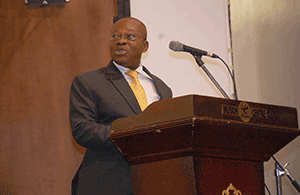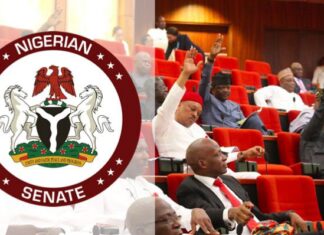Senior Correspondent, ISHAYA IBRAHIM, feels the pulse of the civil society over the $9.3 million cash seized by South African government from Ayo Oritsejafor’s aircraft.

Some Nigerian activists are poised for showdown with the federal government if it fails to bring to justice those who allegedly smuggled $9.3 million (about N1.5 billion) to South Africa, in violation of both countries’ laws on money transfer.
The South African government had, on September 5, seized the $9.3 million flown into the country via a private jet owned by the President of Christian Association of Nigeria (CAN), Pastor Ayo Oritsejafor, who founded the Word of Life Bible Church, Warri, Delta State.
Though the Nigerian government has said the cash was meant for some arms purchase in the country, authorities in South Africa said the explanation was weak.
But a lawyer and President, Voters Awareness Initiative (VAI), Wale Ogunade, said the explanation by Nigerian authorities was a desperate attempt to cover up a classic case of money laundering.
“It is impunity! This is the reign of impunity. This is the time of impunity. This is the time when corruption is taken to the heights. It is only in Nigeria that this type of a thing will happen and people will want to do this shameless cover-up.
“We know that, of course, in Nigeria rules do not reign. Otherwise, you have a rule that says before you take money out of the country, you must declare it. But because these people are in government and they are above the law, obviously the rule will never operate,” he said.
Section 2 of Nigeria’s Money Laundering (Prohibition) Act, 2011, pegged the cash transfer allowed into a foreign country at $10,000 or its equivalent. The law stipulates that any cash transfer exceeding that limit must be reported to the Central Bank of Nigeria (CBN), the Security and Exchange Commission (SEC) or the Economic and Financial Crimes Commission (EFCC) within seven days from the date of the transaction.
So, Ogunade wondered why the government did not comply with its own rules. He recalled that in December 2012, Aminu Lamido, the son of Jigawa State governor, Sule Lamido, was arrested at the Mallam Aminu Kano International Airport en route Cairo, Egypt, by operatives of the EFCC for failure to declare the $50,000 he had on him.
He said: “How can Sule Lamido’s son still be facing the EFCC charge while these people are not? They are getting away with it in Nigeria because they are in government. But thank God, they can’t get away with it in South Africa.”
According to him, the civil society groups will galvanise Nigerians to protest against the reign of impunity.
“Obviously, we will be having a meeting, so that we see how we can mobilise Nigerians. The truth must prevail in this country.
“All these people who have stolen government money will have no peace till they die,” he added.
For Monday Ubani, another lawyer, the most shocking of the saga was the decision of the House of Representatives not to debate the issue on the floor of the House.
Twice during the past week, pandemonium reigned in the House of Representatives following allegations of a $250,000 bribe to members of the Peoples Democratic Party (PDP), to suppress a house inquest into the allegedly laundered $9.3 million.
Ubani’s words: “It is the most unpatriotic act displayed by any house (legislature) in the world. The House of Representatives voted not to have the motion for an act that brought us so much shame and embarrassment – and the legislative arm that has the oversight function as enshrined in the constitution, to carry out that responsibility of finding out what happened – debated. It is very unpatriotic.
“If they have refused to allow investigation, we must draw that conclusion that that is how they have been stashing away our money. And then, Nigerians should react to this impunity in the system.
“We will go to court when they finish investigation in South Africa. South Africa is still waiting for them to come up with more facts. So, we are watching what is going on there,” he said.
For Achike Chude, deputy chairman of Joint Action Front (JAF), the enormity of corruption in the system has overwhelmed activists.
“The issue is that Nigerians believe activists should bail them out of every problem,” he said, urging Nigerians to rise up to the occasion.
In his words: “It is abnormal not to be corrupt in this country. Corruption is second nature to Nigeria. EFCC and ICPC (Independent Corrupt Practices and other related Offences Commission) were never set up to fight corruption; the idea is to protect the interest of the rich,” he said.











